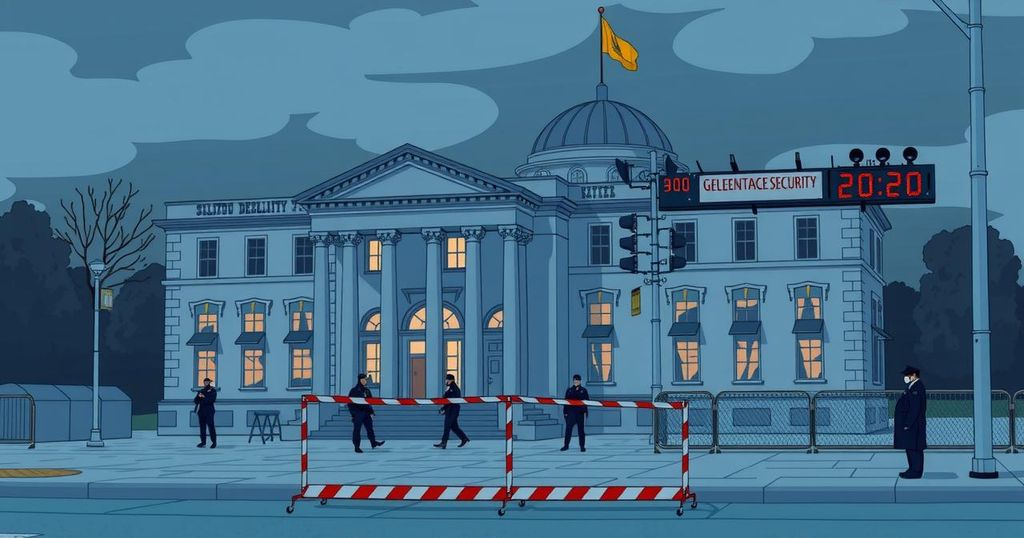Colombia’s Congress has implemented heightened security measures due to anticipated protests initiated by President Petro over a shelved labor reform. The political landscape is marked by tensions between local governments, workers’ rights, and union demands for comprehensive reforms.
In anticipation of protests, Colombia’s Congress has increased security measures following a call from President Gustavo Petro in response to a senate commission’s vote to shelve a significant labor reform. Petro urged labor unions and supporters to take to the streets while Congress deliberates on this crucial reform proposal.
Senate President Efrain Cepeda, a vocal critic of President Petro, announced tighter restrictions on public access to the capital building, allowing entry only for Congress members, state officials, and accredited press. Senator Nadia Blel expressed concern for those senators opposing the labor reform, stating that they have faced attacks and threats from the National Government.
Local authorities in Colombia’s largest cities have indicated they will not permit government employees to participate in the protests, escalating tensions with labor unions. For instance, Bogota Mayor Carlos Galan warned that teachers who strike risk having their salaries withheld, a stance opposed by the teachers’ union, FECODE, which argued that teachers are compensated by the National Government.
Labor Minister Antonio Sanguino remarked that his department would oversee potential employer attempts to suppress workers’ rights to protest, emphasizing that the labor relationship must not infringe upon these rights. He reiterated the Constitutional Court’s stance that employers must uphold workers’ personal dignity, beliefs, and freedom of association.
The protests have garnered support from various labor unions and indigenous organizations, who are also advocating for congressional backing on pending health and pension reforms.
In summary, Colombia’s Congress is implementing heightened security measures in light of upcoming protests called by President Petro against a labor reform decision. The political climate remains tense with local authorities restricting protests among government employees, and labor unions firmly opposing these actions while seeking broader legislative support for essential reforms. As the situation evolves, both citizens and legislators face significant implications for workers’ rights and democratic expression.
Original Source: colombiareports.com




